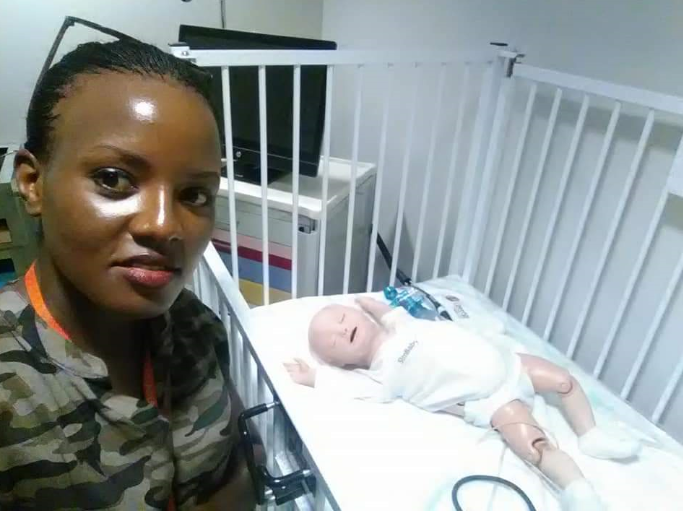How to stimulate your child's brain for intellectual development
Stimulation sparks off curiosity, imaginative skills, attention span, as well as memory and sets them up for future success in school and life.
PARENTING | FAMILY
In 2016, Shunna and Alex Jones Moreno, an American couple adopted Caleb, a five-year-old who had been abandoned in Tororo district. He was orphaned, stunted and in bad shape when the church rescued him before he was given up for adoption.
Surprisingly, a year later, Caleb had grown into a fine boy; healthy, bold, confident, eloquent and intelligent.
When Manuela Pacutho Mulondo visited the family in Oklahoma, she was baffled at former shy village boy who barely spoke a word or looked anyone in the eye.
Mulondo had known Caleb through her husband's work with Watoto Childcare ministries.
"I screamed when Caleb confidently greeted me in a concentrated American accent," she recalls.
"It was clear the little village boy was far ahead of my children. The transformation happened in just a year," she adds.
Throughout her three months stay in USA, Mulondo visited various families and was amazed at the way the kids did things way above their age.
This prompted her to bring African parents together to raise children better to match the developed world.
She recently launched her book; Stop, Listen to your child think. It equips parents with ways to raise African children to be able to compete on the world's platforms.
Mulondo cautions parents to stop raising their children in the same way they were raised because the world they were raised from no longer exists.

In the other words, parents should encourage children to dream, innovate, think extensively and shatter stereotypes instead of teaching them to simply work hard, get a job and marry.
"This might be cultural but it doesn't mean we abandon our culture for the ones of the developed world," she urges.
"Our culture is our DNA and without it we lose the very core of our existence and the fabric with which our communities exist," she adds.
Mulondo advocates a new Africa; a beautiful fuse between our modern and old-fashioned kind of African parenting.
Stimulate the child's brain
Back in Oklahoma, Mulondo's inquisitive mind drove her to inquire from the Morenos how they had managed to transform this boy in such a limited time.
They cut a very long story short for Mulondo and narrated that the first parenting step they took with Caleb was to take him to a pediatrician in Oklahoma whose various tests and scans showed that his brain was under stimulated.
"I also heard this from the educators, child careers and teachers in USA about our children and theirs," she says.
Brain stimulation is the way they know about raising a child. They get the child to ask questions by asking them questions.

Mulondo quickly believed Morenos narrative because she had seen Caleb in both worlds; before and after.
"Stimulation is exposing of a baby and toddler to an activity that arouses their five senses of sight, sound, touch, taste and smell," she says.
You don't have to wait for them to go to school. It has to happen from home because parents are the first teachers to prepare kids for life.
Stimulation sparks off curiosity, imaginative skills, attention span, as well as memory and sets them up for future success in school and life.
It also fosters critical thinking which is the process of logical, sequential, disciplined, objective analysis and evaluation of an issue in order to form judgement.
"Critical skills include; analysis, interpretation, reflection, evaluation, inference, explanation, problem solving and decision making," Mulondo explains.
"Observe if your baby is doing all that. If not, stimulate their brain," she advises.
Manuela adds that stimulation occurs during day activities. For example, as you read a story book for your child, feed them, play with them and while you put them to bed.
You can also stimulate them during shopping trips, watching TV, on the phone and during hospital visits.
Introduce them to words like pediatrician, immunization and more.
Mulondo gives an example of a day she escorted the Morenos to pick Caleb from school. After the boy had settled in the car, Alex completely forgot about Mulondo and went into a deep conversation with his son.
He asked him what he was seeing and thinking as they drove back home. The boy replied to his dad that he was seeing cars and thinking about the smoke that comes out at the back.
Alex went on to ask Caleb where he thought the smoke was coming from and he replied that something was burning.
"Exactly, fuel is burning and that's called combustion," Alex explained.
The duo went on to discuss sun temperature, Ozone layer, electric cars and climate change.
All along Mulondo was quiet but with a lot going through her head. She blamed herself for being selfish to her children by the way she was raising them.
She admired how Alex engaged a five-year-old in matters that she always thought were above children's age.
Alex asked questions, Caleb replied and learned but in a fun pressure free environment. That went on daily, even when they reached home until Caleb went to bed.
"Science shows that the most important development occurs in the first 1000 days of the child's life," Mulondo highlights.
Therefore, this is the best time to teach your baby to talk, see, walk and think critically.
"These days are critical and so, the parent must be loving and caring to the child. Connect with them well. Read, play and talk to them because it's the foundation of success for any child," she explains.
Your child depends on you for intellectual growth
Children are born with an innate desire to learn from and connect with adults around them. Therefore, Mulondo advises that when they ask a question, don't turn them away or shut them up.
Listen and explain to them until they understand. Any child's learning starts from home not school.
"Why does a teacher teach children things found at home like cups, plates and beds among others? It's the parent's role," she wonders.
Do not underestimate your child or think that they are too young to think effectively or make meaningful conversations," Mulondo says.
She is quick to add that a child's mind is a complex one. They have so much to say to express their big ideas. They also have so many questions to ask to understand the world around them.
"They can ask short or open ended questions," Manuela says.
She advises parents to allow the children to think deeply and give well thought answers. Also, the parent should give a detailed explanation on whatever happened hence allowing the conversation to continue.
"Making children do things your way inhibits critical thinking. The conversation with your child should flow freely," she opines.
Mulondo is quick to add that such conversations are the basic unit of stimulation as they give the child a language which they can use to think.
"Your child will think in the very language you use," she says.
In other words, children depend on their parents for intellectual growth which is why from birth, one needs to develop a strong relationship with their child. Engage them in conversations and celebrate them.
"When you converse with your child, you develop a stronger bond and the child's brain connections are strengthened," she explains.
"But since your baby might not have many words, you need to feed them with more to enrich their vocabulary," she advises.
Mulondo adds that children pick up words easily.
"Your child is listening to you and is eager to use the words you can use in a sentence as they talk with you, with other children or as they engage in imaginative play," she elaborates.
Children are never too young to understand words or sentences.
"Quit cooing back at your child. They are only trying to imitate the use of words," she says.
"If they coo, respond with correct well-formed sentences and watch your baby start to use words impressively for their age," she adds.
And as they grow, encourage them to learn than cram. For example, when a child makes a mistake, don't laugh at them lest you demoralize them.
Instead, restate what they have said and improve their vocabulary so they hear and understand the difference.
Ensure to accompany the words with facial expressions, gestures, pitched tone and touch.
They will help the child make a connection between their actions and words.
"Don't get discouraged if your child does not respond as you expected. Try over and over again," she suggests.
Aside from that provide for them an enjoyable environment that is full of love rather than pressure to pass an exam.
"Help them make connections between two concepts, ideas or events. This is called scaffolding conversation," Mulondo opines.
"If say, your conversation started with cars, connect the cars to other means of transport like trains, airplanes and boats. The conversation can go on and on and the child's learning would significantly be more advanced than the age mates."
Who is Mulondo?
Manuela Elizabeth Pacutho Mulondo was born to Joseph Pacutho and Agnes Ruteitsire.
She is married to media personality; Brian Mulondo and together they have two children; Blake and Bianca.
Manuela has 15 years' experience working with children and in 2014 she founded The Cradle; a 24 hour child care center that is partnering with mothers, families, organizations and governments across Africa to create spaces for lactation and childcare at the workplace.
In recognition of her unconventional approach to women empowerment, she was selected to give former US president Barrack Obama an introductory key note address during his 2018 visit to Africa.
In 2017, she was selected for the Mandela Washington fellowship where she learned the role of child brain stimulation in advancing economic development.